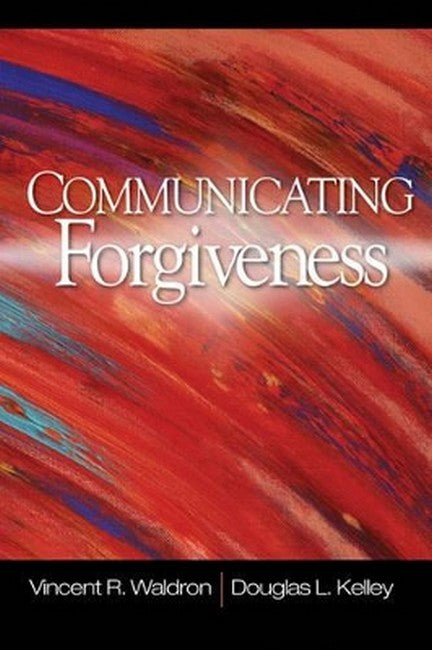Vincent R. Waldron is Professor of Communication Studies at Arizona State University, where he teaches courses on communication in work and personal relationships. Professor Waldron received his Ph.D. from Ohio State University in 1989. Dr. Waldron's research explores how employees manage difficult workplace encounters, such as expressing intense emotion, exercising upward influence, and repairing damaged relationships. The author of two previous books on these subjects, Professor Waldron has published his work in such outlets as the Journal of Social and Personal Relationships, Management Communication Quarterly, and Communication Yearbook. Vince Waldron has been recognized as a Professor of the Year by the Carnegie Foundation for the Advancement of Teaching. He is chair-elect of the Interpersonal Communication Division of the National Communication Association. With his wife Kathleen and daughters Emily and Laura, Vince Waldron resides in Phoenix, Arizona. Douglas L. Kelley (Ph.D., University of Arizona; M.C., Arizona State University; B.A., Westmont College) is Associate Professor of Communication Studies at Arizona State University's West Campus where he studies and teaches about communication in personal and family relationships. Dr. Kelley has published his work in such outlets as Human Communication Research, Communication Studies, and Communication Yearbook. He has served as Chair of the Family Communication Division of the National Communication Association. Dr. Kelley (with his colleague Vince Waldron) received funding from the Templeton Foundation to support research on the role of forgiveness in long-term marriage.
Request Academic Copy
Please copy the ISBN for submitting review copy form
Description
Preface 1. Conceptual Foundations Why Is Forgiveness Important? Theological Foundations Social Science Approaches 2. Elements of the Forgiveness Process Sensitizing Concepts: Communication as an Observational Lens Transgressions and Traumatic Relational Events Relational Context Individual Factors Communication Processes Relationship Outcomes Conclusion 3. Theorizing Forgiveness Dialectical Theory Uncertainty Management Frameworks Identity Management Theories Towards Negotiated Morality Theory (NMT) of Forgiveness 4. Communicating Forgiveness The Forgiveness Episode: Six Communication Processes Revealing and Detecting Transgressions Managing Emotions Making Sense Seeking Forgiveness Granting Forgiveness Relationship Negotiation and Transition Concluding Thoughts 5. Practicing Forgiveness Five Reasons to Forgive The Dark Side of Forgiveness Prescriptive Models of Forgiveness Communication Tasks of Forgiveness (CTF): A New Prescriptive Model Reconciliation: A Possible Outcome of Forgiveness Contributions From Long-Term Couples Concluding Thoughts 6. Studying Forgiveness: Methodological Conundrums and Transformational Experiences Why Do We Study Forgiveness? Conceptual Definition: What Is Forgiveness Anyway? Picking Our Paradigm: Which Questions Matter Most? How Do You Measure Forgiveness? Transformations Appendices References Index About the Authors
"Waldron and Kelley successfully weave in examples from their qualitiative studies to illustrate various forgivemess concepts. The qualitative approach is a nice complement to the mostly quantitative work done in personal relationships. The authors provide insight into important methodological considerations such as conceptual definitions of forgiveness and measurement issues. The book fits nicely with the positive psychology movement. I found it refreshing to see a book that tackles how people can recover from such serious transgressions." -- Karen Wilson

